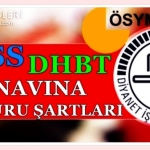Why is İnterest in İslam Prohibited?
Interest is earning money from money without producing anything, i.e. ribâ, and Islam prohibits ribâ, and commands to pay alms (zakâh).
Interest is taking and giving nothing in return, while zakâh is giving and taking nothing in return. Interest deteriorates the borrowers’ financial situation, and consolidates the rich ones’ finances, while zakâh financially supports the needy.
Why does Islam prohibit usury?
Charging interest amounts to exploiting one’s labor, while zakâh is sharing one’s bread with other brethren. Interest increases the quantity of property but destroys its quality, while zakâh consolidates its property although seemingly decreasing quantity. The “reward” for usury is punishment in the Hereafter, while sincerely given zakâh will yield esteem and reward in the hereafter (Rum 30:39).
Thus, the justification for prohibiting interest on money is actually a prohibition of exploitation of labor and underserved earnings, while encouraging creativity, labor and production. The Qur’an warns that one declares “war with Allah and His Apostle” (Baqarah 2:279) in cases of usury, while other prohibitions—hence, sins—are not described in such a harsh language.
Why does the Qur’an define usury “a declaration of war against Allah?”
In the Qur’anic language, anything that humans possess is referred to as the property of Allah. For instance, the Qur’an says the Kâbah, a holy shrine entrusted to people, is “Allah’s House” (baytullah); Earth, also entrusted to humans, is “Allah’s Earth” (‘ardullah); a camel that was entrusted to a group in the past was “Allah’s camel” (nâqatullah).
The same language, subsequently, qualifies a violation of any human’s rights as a violation of Allah’s rights. That is why the Qur’an states that interest on money, which is a clear violation of society’s monetary rights, is “a declaration of war against Allah.” Interest on loaned money is considered a violation of humankind’s rights, for any interest-based process or operation praises exploitation and degrades labor.
This outcome, in turn, devalues humans’ honest labor in other people’s eyes and elevates the status of money renters. It is obvious that such status quo propels financial gain and diminishes mercy and compassion. In such a situation, a desire to hoard and collect worldly items trumps creativity and labor, which certainly is a collective loss for humanity.
The prohibition of interest money is aimed at curbing humans’ “desire to hoard.” The Qur’an relates unspeakable horrors one could face in the Hellfire, should they be invested by and fall victim to their desire to hoard worldly materials: “You are obsessed by greed for more and more until you go down to your graves.
Nay, in time you will come to understand! And once again: Nay, in time you will come to understand! Nay, if you could but understand [it] with an understanding [born] of certainty, you would indeed, most surely, behold the blazing fire [of hell]! In the end you will indeed, most surely, behold it with the eye of certainty: and on that Day you will most surely be called to account for [what you did with] the boon of life!” (Takathur 102:1-8)
Why does Islam prohibit gambling?
Gambling is one of the vices explicitly prohibited in Islam (Baqarah 2:219). (The Arabic term for gambling—“maysir”—denotes “easy earning.”)
The prohibition of gambling resembles the prohibition of interest and usury:
Gambling is disrespect and dishonor to human labor. Similarly, gambling is an act committed by individuals, which inevitably leads to moral decay and corruption, thus infringing upon the wider society’s right.
Gambling is a source of many issues in the society including break out of families, exploitation of human labor, addiction and murders. Any sort of gambling is an insult to labor and laborers.
Therefore, the sin of gambling can be considered as a moral threat toward those who highly value and esteem labor.

































